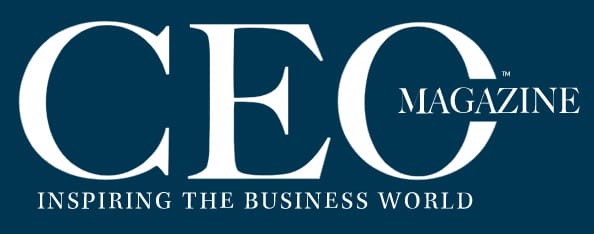Online Master of Business Administration

The University of Cincinnati Lindner College of Business’ online MBA program is a unique and comprehensive program that blends academic, research-intensive learning with real-world experiences that prepare you with the skills necessary to tackle today’s business challenges.
The Lindner (Online) MBA Experience
In the Lindner MBA, you'll gain strategic leadership and decision-making skills as well as core skills in accounting, economics, finance, leadership, operations management, business analytics, information technology, and marketing.
Enrolling in one of the top online MBA programs means you can log on when your schedule allows. The program can be completed in a year, with the option to take in-person courses at UC’s Uptown Campus.
High Quality Education
Our flexible online MBA allows you to tailor your learning experience by choosing from among 12 credit hours of electives. Whether you’re aiming to deepen your expertise in finance, pivot into marketing, or lead in a healthcare setting, our wide range of certificate and concentration offerings ensures your MBA works for you.
Available Specializations & Certificates:
- Health Care Administration – Build the leadership and operational skills needed for managing hospitals, clinics, and healthcare systems.
- Health Care Finance – Learn the financial principles that drive decision-making in healthcare organizations, including reimbursement models and budgeting.
- Health Care Operations – Focus on process improvement, quality control, and logistical planning in healthcare delivery systems.
- Health Care Policy & Regulation – Understand the legal, ethical, and policy issues shaping the healthcare industry.
- Marketing – Explore consumer behavior, brand strategy, and integrated marketing communications to elevate your marketing expertise.
- Digital Marketing – Gain hands-on knowledge in SEO, social media strategy, content marketing, and analytics in the digital space.
- Data Analytics – Learn how to extract insights from data to inform business decisions across functions like marketing, operations, and finance.
- Corporate Taxation – Dive into U.S. corporate tax laws, compliance, and planning strategies for businesses.
- Individual Taxation – Focus on personal income taxation, tax preparation, and planning for individuals and small businesses.
- Investment Management – Study portfolio theory, risk assessment, and financial instruments for managing investments.
- Quantitative Finance – Leverage mathematical models and programming tools for high-level financial analysis and risk modeling.
- Artificial Intelligence in Business – Discover how AI technologies are transforming industries and learn how to apply AI solutions to solve real-world business problems.
Flexibility
- 100% online
- No GMAT requirement
- Courses offered in spring, summer and fall semesters
Support from Application to Graduation
At UC, you’ll have a full support team behind you:
Enrollment Services Advisor: Your go-to resource during the application process
Student Success Coordinator: Helping you prepare for classes and stay on track
Access to Resources: Access to university resources that will support you through your program including online learning expectations and resources, health and wellness resources, and academic support
Admission to the Lindner College of Business online MBA is selective and based on a combination of factors, including academic and professional achievement, strong communication skills, and a proven record of effective leadership. Applicants should have at least a B grade average (or equivalent) in undergraduate coursework, or otherwise provide evidence of academic promise that is satisfactory to the admitting department.
Applications to the Lindner Online MBA are reviewed in a manner that carefully considers all aspects of the application portfolio. Following review by the admissions committee, accepted applicants will receive notification if they have been fully or conditionally admitted to the program.
NO GMAT OR GRE REQUIRED TO APPLY
Lindner College of Business has removed the GMAT and GRE requirement of the application. Contact an Enrollment Advisor to learn more!
Complete the online application and submit the application fee.
Standard Application Fees:
- $65.00 for domestic applicants to most degree programs
- $70.00 for international applicants to most degree programs
- $20.00 for domestic applicants to Graduate Certificates
- $25.00 for international applicants to Graduate Certificates
- Application fees are waived for Summer 2026 applications submitted by March 1st, 2026
- Application fees are waived for Fall 2026 applications submitted by July 1st, 2026
- Fee waivers are automatically applied for applicants who:
- are currently serving in the US armed forces
- are veterans of the US armed forces
An unofficial transcript (or degree audit) is required from each institution attended, including in-progress coursework, even if from the University of Cincinnati. These documents must show a complete record of your courses and grades. Uploading an unofficial transcript is recommended, but an official transcript may also be sent. Your application will not be reviewed until all transcripts are received.
International Applicants: You must have a U.S. bachelor's degree from a regionally accredited institution or an international equivalent before starting the program. While NACES course-by-course evaluations are not required at time of admission, one may be requested in certain cases at the time of application. Your unofficial transcripts must be translated into English. If your grading scale isn't on a four-point scale, you will be asked to translate in the application process. For international three-year bachelor’s degrees, use the free WES degree equivalency tool to confirm U.S. equivalency. Please review the Graduate College's transcript submission policy after enrollment.
Please select one recommender who was, or currently is, a supervisor who can speak to your professional experience. Letters of recommendation must come directly from the listed recommender on your application.
IMPORTANT: Your application will not move forward in the review process until we receive the letter of recommendation.
At the University of Cincinnati Lindner College of Business, we value thought-driven leaders. With this in mind, please upload a personal statement expressing the following:
- How will the pursuit of a Lindner MBA prepare you to meet your career goals?
- How does your background prepare you to be successful in the program?
- What short or long-term career goals do you have?
Optional: Is there something in your resume or application that needs a brief explanation? Areas in this field may include academic outliers, career breaks, completion of additional coursework, etc.
Formatting: We recommend the personal statement be between 250 and 500 words, double-spaced.
Ensure your resume clearly lists the dates of any professional (ex: full-time role, internships, co-ops), volunteer, non-profit or any other leadership experiences. There is no formatting requirement. However, please review your resume for any grammar mistakes. It should be no longer than two pages.
Standardized test scores are not required for admission to the MS program. Applicants can submit scores if they would like them to be considered as part of the application review process. The admissions committee will accept Graduate Management Admission (GMAT) and Graduate Record Examination (GRE) test scores. Scores must be sent directly from the agency to the following address:
Graduate Admissions
University of Cincinnati
PO Box 210091
Cincinnati, OH 45221-0091
- $65 ($70 international) non-refundable University of Cincinnati Graduate School application fee.
If your native language is not English, you must demonstrate your proficiency in English. This includes submitting an IELTS, TOEFL or Duolingo test score.
Please reference the below minimum score requirements.
| Program | TOEFL (0-120 scale)* | TOEFL (1-6 scale)* | IELTS** | Duolingo |
|---|---|---|---|---|
| MBA | 90 | 4.5 | 7 | 120 |
| MS Business Analytics | 95 | 5 | 6.5 | 110 |
| MS Information Systems, MS Marketing & PhD Programs | 100 | 5 | 7.0 | 115 |
| All other programs | 80 | 4.5 | 6.5 | 110 |
*TOEFL: Can be sent using school code 1833
**IELTS: Can be sent to University of Cincinnati - Graduate School account.
For additional information, please reference the Graduate College website.
| Term | Application Deadline | Classes Start |
|---|---|---|
Summer 2026 Fall 2026 Spring 2027 |
April 1, 2026 July 1, 2026 November 15, 2026 |
May 11, 2026 August 24, 2026 January 11, 2027 |
The University of Cincinnati's online course fees differ depending on the program. On average, students will accrue fewer fees than students attending on-campus classes.
The one fee applied across all UC Online programs is the distance learning fee. Students living outside the state of Ohio must also pay an additional “non-resident” fee to enroll in courses at UC Online. This fee is lower than the out-of-state fee for traditional on-campus programs.
To view tuition information and program costs, visit the Online Program Fees page.
Led by the same award-winning faculty as our on-site program, the online MBA is consistently ranked as one of the best online MBA programs in the country!
- Association to Advance Collegiate Schools of Business (AACSB)
- Accredited by the Higher Learning Commission (HLC)
- Fortune.com ranks our online MBA as #15 in the U.S. (2024)
- U.S. News & World Report rankings: #1 Public MBA Program Online in Ohio; #14 Online MBA for Business Analytics; #52 Public Institutions in the U.S. (2024) (up 58 spots from 2023)
- CEO Magazine rankings: Top 20 in North America; Top 30 in the World
- College Values Online ranks our program the 14th Best Online MBA – Health Administration
- Poets & Quants rankings: #35 in the U.S. and one of the Biggest Climbers (up 7 spots from 2023)



Ready to get started?
We offer over 130 degrees from undergraduate to doctoral programs.


